Best USB-C Fast Charging Cables: Top Picks & Guide
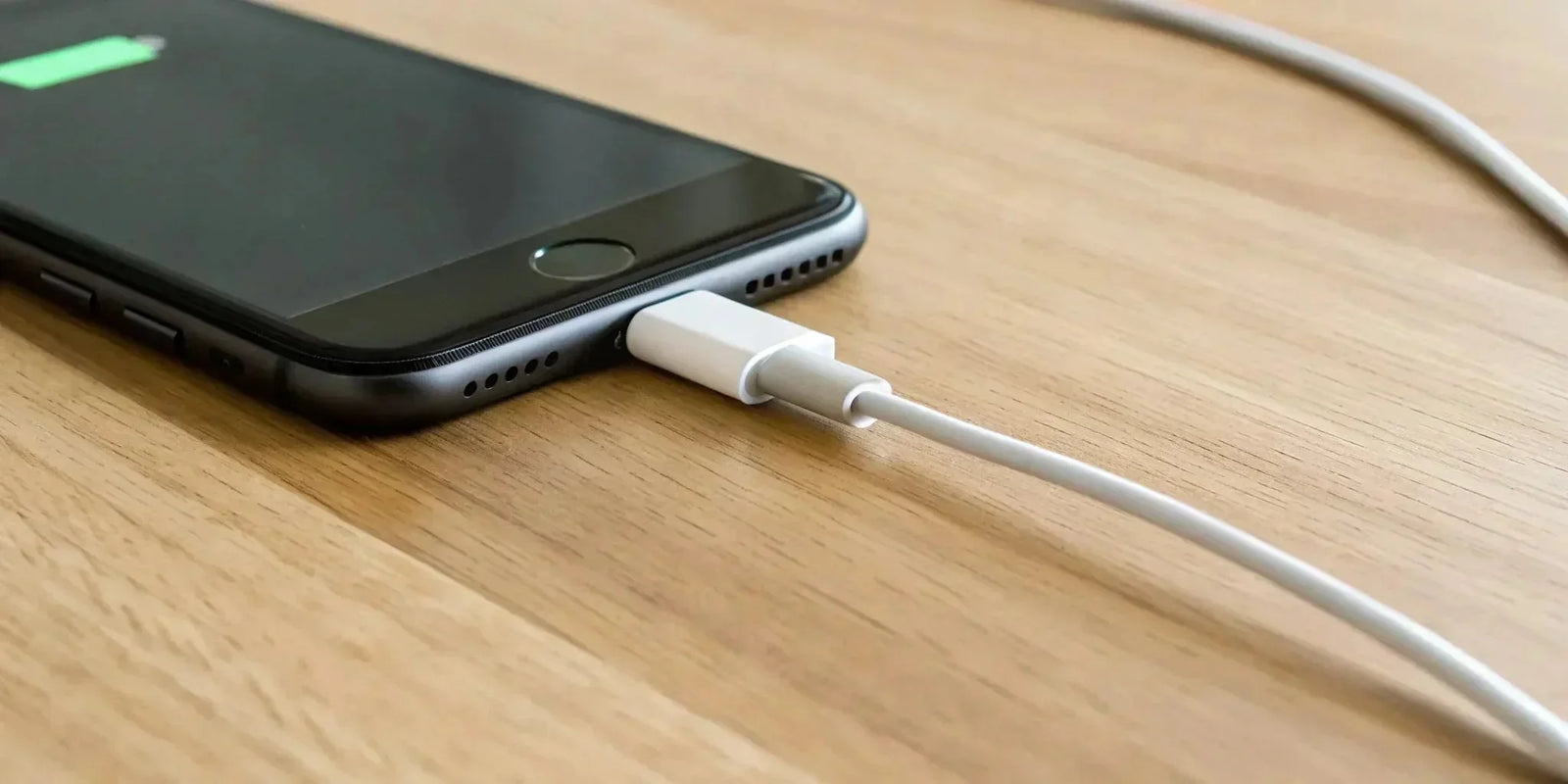
Low battery anxiety is the worst. But what if you could ditch the wall and get back to life faster? With the best USB C cable or even the fastest USB C cable designed for your device, you absolutely can. This guide breaks down everything you need to know about USB-C fast charging: how it works, why it's better, and what to look for when you're shopping. We'll also share simple tips to maximize your charging speed and keep your devices healthy. Ready to power up?

Portable Solar Power Bank 26800mAh - 99Wh Fast Charger
Lithium Polymer (Li-Po) battery. PD fast charging. Holds up to 8 days of reliable power on a single charge. Boasts a charging speed 50% faster than ordinary portable chargers.
Shop NowKey Takeaways
- Invest in quality cables: Features like Power Delivery (PD) support, durable construction, and device compatibility are essential for fast, reliable charging and data transfer. A well-made cable protects your devices and offers better performance.
- Think system, not just cable: Fast charging relies on a compatible charger, cable, and device. Check your device’s specifications to ensure everything works together seamlessly.
- Smart charging extends battery life: Proper cable care, optimized device settings, and complementary accessories like portable power banks maximize charging efficiency and battery health.
USB-C Fast Charging Explained
USB-C fast charging has changed how we power our devices. It uses the USB-C connector, a small, reversible oval port, to deliver much more power than older USB types. This translates to less time plugged into the wall and more time enjoying your phone, tablet, or laptop. USB-C is quickly becoming the standard, offering fast charging, quick data transfer, and even video output—all in one compact connector. TechBullion discusses how USB Type-C is revolutionizing how we connect with our electronics.
What Makes a USB-C Cable "Fast Charging"?
Not all USB-C cables are created equal. If you’re searching for the best USB C cable, remember that internal components determine charging and data transfer speeds. The fastest USB C cable will typically support higher wattage and Power Delivery (PD), making it a better investment for performance. A "fast charging" cable supports higher currents and voltages, delivering power to your device more quickly. Anker explains how factors like cable gauge (thickness) and length impact charging speed. Thicker, shorter cables generally charge faster because of lower resistance. To maximize charging speed, ensure your cable, device, and wall charger support the same fast-charging standard, like USB Power Delivery (PD).
Cable Thickness and Amperage
Ever notice how some USB-C cables feel thicker than others? There's a reason for that. Cable thickness, also known as gauge, plays a role in how quickly your device charges. Generally, a thicker cable means a lower gauge number, and lower gauge cables can handle higher amperage. Think of it like a water pipe: a wider pipe allows more water to flow through. Similarly, a thicker cable allows more current to flow, leading to faster charging. A fast-charging cable will typically carry at least 2 amps. So, thicker cables are often a good first visual cue.
While a thicker cable is often a good indicator of fast-charging capabilities, it's not the whole story. The cable's internal construction and materials also matter. A well-made cable, even if it's not super thick, can still deliver a fast charge. That's why it's important to look beyond just the thickness and consider other factors.
Identifying Fast Charging Cables (Visual cues and markings)
So, how can you tell if a USB-C cable truly supports fast charging? There are a few visual cues and markings to look for. First, check the connector itself. USB Type-C connectors are designed for the fastest speeds and charging capabilities. However, just having a USB-C connector doesn't automatically guarantee fast charging. You'll need to look a little closer.
Look for logos or markings on the cable or its packaging. Many fast-charging cables will feature logos indicating support for specific protocols like USB Power Delivery (USB-PD), Qualcomm Quick Charge, or other proprietary fast-charging technologies. These markings can help you confirm that the cable is designed for fast charging. For example, KEUTEK's ProSeries Max clearly display their power delivery capabilities.
Finally, check the cable's packaging for its amperage rating. This rating tells you the maximum current the cable can safely carry. As mentioned earlier, a higher amperage is generally better for fast charging. If the packaging doesn't provide this information, you might want to consider other options, especially if fast charging is a priority. Investing in a quality cable is an investment in your devices and your time.
How USB Power Delivery Works
USB Power Delivery (PD) is a fast-charging standard that automatically adjusts the power flow between the charger and your device. This smart communication optimizes charging speeds and minimizes wasted power. KEUTEK's ProSeries USB-C cables support PD, ensuring efficient and fast charging for various devices, from Apple to Samsung. This technology reduces power loss during charging, so more power from the wall outlet gets to your device's battery. PD also allows for higher power levels than older standards, enabling faster charging for larger devices like laptops.
The Role of the Charger (Wall Adapter)
A good USB-C cable is essential, but your wall adapter (the charger) is equally important for fast charging. Think of the cable as the highway, and the charger as the speed limit. Most standard chargers only support 15W charging, which won't maximize your device's fast-charging potential. For the fastest speeds, you need a charger with higher wattage, like those in KEUTEK's Fast Wall Chargers collection. Even with a top-tier cable, a low-wattage charger will restrict the charging process. One Reddit user highlighted that any compliant USB-C cable works for up to 60W charging, but the charger is often the limiting factor. Invest in a charger that matches your device's maximum charging rate.
Device Negotiation and Optimal Charging Speeds
Your device, cable, and charger "communicate" to determine the optimal charging speed. This negotiation ensures safe and efficient charging. Your device asks the charger how much power it can provide, and the charger responds. The resulting charging speed depends on all three components. For example, a 60W charger and a 100W-capable cable paired with a phone that only supports 25W charging will result in 25W charging. This dynamic interaction, also discussed on Reddit, ensures your device receives the correct power without damage.
Fast Charging Protocols (PD, Quick Charge, Adaptive Fast Charging, etc.)
Fast charging isn't universal. Different manufacturers use different protocols, like USB Power Delivery (PD), Qualcomm Quick Charge, Samsung Adaptive Fast Charging, and Motorola TurboPower. These protocols are like languages for communication between the charger and device. PD is the most universal, supported by many devices, including Apple and Google products. Quick Charge is mainly used in Android devices. For compatibility, check your device's specifications and look for these protocols on cable packaging or product descriptions, as WikiHow suggests. KEUTEK's Fast Car Charger and Fast Portable Power solutions use these technologies for optimal charging speeds on the go.
Must-Have Features: USB-C Fast Charging Cables
Looking for a new USB-C cable? It’s not as simple as grabbing the first one you see. Not all USB-C cables offer the same performance, especially when it comes to fast charging. Here’s what to look for:
Power Delivery (PD) Explained
Power Delivery (PD) is the key to fast charging. A cable that supports Power Delivery can deliver much higher wattage than a standard USB-C cable, allowing significantly faster charging for your devices. Look for cables that explicitly state their PD compatibility and wattage—for example, 60W or 100W. KEUTEK’s ProSeries cables support PD fast charging for a wide range of devices.
Data Transfer Speeds: What to Expect
Beyond charging, your USB-C cable also handles data transfer. Whether you’re backing up photos or syncing files, the right cable can make a big difference. Look for cables that support USB 3.1 or 3.2 for the quickest data transfer rates. As PCWorld points out, today’s USB-C cables are used for everything from charging small electronics to powering laptops, so data transfer capability is a must-have.
USB Version Data and Power Specs
Understanding the different USB versions is crucial for maximizing the benefits of USB-C fast charging. Each version offers distinct data transfer speeds and power delivery capabilities, impacting how quickly your devices charge and how fast you can move files. Knowing the difference helps you choose the right cable for your needs.
Here’s a breakdown of the common specs:
- USB 3.1: This version supports data transfer speeds up to 10 Gbps and can deliver up to 100W of power. This makes it suitable for charging larger devices like laptops and transferring large files quickly. Cables that support USB 3.1 are ideal for users who need both fast charging and high-speed data transfers.
- USB 3.2: Building on USB 3.1, USB 3.2 achieves data transfer speeds up to 20 Gbps while maintaining the same 100W power delivery. This is an excellent choice for users who require even faster data transfer alongside efficient charging. Think photographers working with large image files or videographers moving hefty video projects.
- USB Power Delivery (PD): This fast-charging standard dynamically negotiates power delivery between the charger and the device, optimizing charging speeds and minimizing energy loss. USB PD can deliver up to 240W, beneficial for charging high-performance laptops and other power-hungry devices. KEUTEK’s ProSeries USB-C cables leverage the power of PD for efficient and fast charging.
Compatibility and Performance: For optimal performance, ensure your cable, charger, and device all support the same USB version and fast-charging standard. This compatibility is key to maximizing both charging and data transfer efficiency. A mismatch could mean slower speeds than you expect. This guide offers helpful tips on checking compatibility.
By understanding these specifications, you can make informed decisions when selecting USB-C cables and chargers, ensuring you get the most out of your fast charging experience.
Durability: Choosing a Long-Lasting Cable
A durable cable is a worthwhile investment. But if you're searching for the fastest USB C charging cable, durability must go hand-in-hand with performance. Check for features like reinforced connectors, braided nylon exteriors, and thick cable gauges. These can help your cable withstand daily wear and tear. KEUTEK emphasizes durability with robust materials like tinned copper wire for a longer lifespan.
Device Compatibility: Will It Work With Mine?
Make sure the cable you choose is compatible with your devices. While USB-C is becoming standard, compatibility issues can still arise. KEUTEK’s ProSeries cables offer a versatile charging solution with cross-device compatibility.
Cable Length and Gauge: Does It Matter?
Cable length and gauge (thickness) affect charging speed. Shorter, thicker cables generally charge faster than longer, thinner ones. Anker explains this relationship in detail, so you can choose the right cable for your needs. Consider where and how you’ll use the cable. A longer cable might be more convenient at your bedside, while a shorter, more robust cable might be better suited for travel.
Variety of Cable Lengths Available
When it comes to USB-C fast charging, cable length matters. You'll find everything from compact cables under a foot long to those stretching over 10 feet. Shorter cables are generally more efficient for fast charging because they minimize resistance, delivering power quickly. Anker confirms that shorter, thicker cables offer the best speeds, perfect for a quick boost when you’re near an outlet. Something like KEUTEK's ProSeries USB-C cable provides a good balance of length and efficiency.
Longer cables offer more convenience, especially if you need to use your device while charging, like at your desk or in the car. However, that extra length increases resistance and might affect charging speed. Amazon's selection of USB-C cables showcases the variety of lengths available, so you can find the best fit for your needs. Check out KEUTEK's car charger and cable combo—it's optimized for charging on the road. The ideal cable length depends on your individual preferences and how you typically charge your devices.
Whether you choose a compact cable for travel or a longer one for home use, understanding how cable length affects charging speed helps you make an informed decision. Think about your usual charging habits and pick a cable that balances convenience with charging efficiency. For those who are always on the move, KEUTEK's portable power solutions could be a worthwhile investment.
Best USB-C Fast Charging Cable Brands
Finding the right USB-C fast charging cable can feel overwhelming with so many options available. This section breaks down some of the leading brands, highlighting what they offer so you can make an informed decision.
KEUTEK ProSeries USB-C Cables: A Closer Look
KEUTEK's Commitment to Quality and Innovation
At KEUTEK, we know a cable is more than just a connector; it's a lifeline for our devices. That's why we're committed to building products that offer both fast charging and lasting durability. Our ProSeries USB-C cables, for example, use high-quality tinned copper wire to ensure a reliable connection and minimize power loss. This means more power from the wall outlet actually reaches your device's battery, resulting in faster, more efficient charging. We've discussed the importance of quality cables in detail on our blog.
Compatibility is also key. No one wants a drawer full of different cables for different devices. KEUTEK's ProSeries cables offer a versatile charging solution with cross-device compatibility, working seamlessly with everything from smartphones and tablets to laptops. With support for Power Delivery (PD), our cables deliver higher wattage for significantly faster charging than standard USB-C cables. Learn more about our ProSeries cables and their PD capabilities.
Durability is another cornerstone of KEUTEK's design. We use reinforced connectors and braided nylon exteriors to help our cables withstand daily wear and tear. Because cables inevitably get bent, twisted, and tossed around, we build ours to last. Learn more about our commitment to durability on our website.
Best USB-C Fast Charging Cable Brands
Finding the right USB-C fast charging cable can feel overwhelming with so many options available. This section breaks down some of the leading brands, highlighting what they offer so you can make an informed decision.
KEUTEK ProSeries USB-C Cables: A Closer Look
KEUTEK's ProSeries USB-C cables are engineered for speed and durability. Built for cross-device compatibility, these cables support fast charging and high-speed data transfer for both Lightning iOS and USB-C devices. The ProSeries cables support Power Delivery (PD) fast charging, meaning you can power up your devices quickly and efficiently. Whether you're charging a phone, tablet, or laptop, KEUTEK's ProSeries offers a reliable, high-performance solution. They also offer convenient bundles with wall chargers for a complete fast-charging setup.
Anker: Reliable USB-C Cables
Anker provides a wide selection of USB-C cables catering to various needs and budgets. Known for their focus on durability, Anker offers options like the Anker 765 and Anker 643, both recognized for their fast-charging capabilities. You can find more information on their website, where they discuss the differences between USB-C cables and their charging speeds. This makes it easier to choose the right cable based on your specific device and charging requirements.
Belkin: Quality USB-C Options
Belkin is another reputable brand in the fast-charging arena. Their BoostCharge USB-C to USB-C cable stands out for its versatility and high wattage support (up to 240W). This makes it a solid choice for quickly charging both phones and laptops. Belkin emphasizes build quality, ensuring their cables can withstand daily wear and tear. For more information on recommended USB-C cables, including Belkin's offerings, check out this Wirecutter review.
Ugreen: Affordable USB-C Choices
Ugreen has earned a reputation for producing reliable and affordable USB-C cables. They support fast charging and data transfer, offering a practical solution for those seeking a balance between performance and price. Tech publications like PCWorld often include Ugreen cables in their roundups of top USB-C options.
JSAUX: Budget-Friendly USB-C Cables
JSAUX offers a range of USB-C cables known for their durability and fast charging performance. Customer reviews frequently mention their reliability, and you can find a wide selection of their cables on Amazon. JSAUX often focuses on providing value, offering durable cables at competitive price points.
A cable’s charging speed boils down to how efficiently it transfers power. Look for cables that support Power Delivery (PD) fast charging. PD cables minimize power loss, meaning more power gets to your device, and faster. KEUTEK’s ProSeries Fast Charging Cable, paired with the right wall charger, can charge your devices up to 33% faster than standard cables. They also intelligently adjust voltage and current, which is better for your battery’s health over time.
INIU: Fast and Durable USB-C Cables
INIU has built a solid reputation for creating durable USB-C cables that can withstand daily wear and tear. Users often praise the cables' resistance to fraying, even with frequent bending near the connectors. This durability, combined with their fast charging capabilities, makes INIU a practical choice for people looking for a reliable cable that can handle being tossed in a bag and still deliver a speedy charge.
Baseus: Innovative USB-C Solutions
Baseus is known for its innovative approach to USB-C charging solutions. They offer a wide selection of cables and chargers designed to support fast charging and efficient data transfer across various devices. Reviewers and tech enthusiasts appreciate Baseus's focus on compatibility and performance. If you're interested in exploring the latest advancements in charging technology, Baseus is worth checking out.
Data Transfer Rates: How Fast Are They?
Beyond charging, USB-C cables transfer data. Whether you’re backing up photos or syncing large files, data transfer speed matters. A quality USB-C cable supports high data transfer rates, so you’re not stuck waiting around. These cables are versatile enough to handle everything from connecting to monitors to powering laptops and even some power tools. Check out these expert reviews for more information on data transfer capabilities.
Price vs. Performance: Getting the Best Value
You don't always have to overspend for a good USB-C cable. Reputable brands offer excellent cables at reasonable prices. You can find a pair of six-foot USB-C to USB-C charging cables for around $14 from a reliable brand. This price point offers great value, especially for charging multiple devices like your phone, tablet, or a smaller laptop. Expert reviews and buying advice can help you find the best deals.
Multi-Packs and Cost Savings
If you need several USB-C cables, buying a multi-pack is a smart move. Many brands offer packs of two, three, or even five cables, often at a lower price per cable than buying them individually. Amazon offers a wide selection, from budget-friendly to premium options. This is a practical way to outfit all your devices or have spares handy without overspending.
Market Competition and Pricing
The USB-C fast charging cable market is competitive, especially on Amazon. This is good news for shoppers, as it leads to a wide range of prices and frequent sales. Many solid options are available for under $10. For example, a two-pack of Anker 60W USB-C to USB-C cables with excellent reviews is often found in this price range. You can even find three-packs of 60W cables for less. Higher-powered options, like the INIU 240W two-pack, are also competitively priced. Compare various brands and their features to find the best value for your needs. Browse Amazon to see current prices and deals.
Built to Last: Cable Durability and Lifespan
A durable cable is a worthwhile investment. Look for cables built with reinforced connectors and high-quality materials. KEUTEK designs its cables for heavy daily use. The tinned gauge copper wire core supports fast charging and data transfer and contributes to the cable’s overall lifespan. This means fewer replacements and less e-waste. Learn more about KEUTEK cables here.
Comparing Top USB-C Fast Charging Cables
Not all USB-C cables are created equal. Understanding the key differences helps you choose the right cable for your needs. Here’s a breakdown of what to consider when comparing USB-C fast charging cables:
Charging Speed: Which is Fastest?
A cable’s charging speed boils down to how efficiently it transfers power. Look for cables that support Power Delivery (PD) fast charging. PD cables minimize power loss, meaning more power gets to your device, and faster. KEUTEK’s ProSeries Fast Charging Cable, paired with the right wall charger, can charge your devices up to 33% faster than standard cables. They also intelligently adjust voltage and current, which is better for your battery’s health over time.
Charging Speed Examples and Reviews
When it comes to USB-C fast charging, a cable’s efficiency significantly impacts charging speeds. For example, KEUTEK’s ProSeries Fast Charging Cable, designed to support Power Delivery (PD), charges devices up to 33% faster than standard cables. This speed boost happens because these cables minimize power loss, maximizing the energy delivered to your device’s battery. They also intelligently adjust voltage and current, contributing to better long-term battery health.
Anker offers a wide range of USB-C cables known for their durability and fast-charging capabilities. Products like the Anker 765 and Anker 643 cater to different needs and budgets, making them reliable charging solutions. Anker points out that factors like cable gauge and length affect charging speed—thicker, shorter cables generally charge faster because of lower resistance.
Belkin’s BoostCharge USB-C to USB-C cable stands out with its support for up to 240W. This high wattage makes it suitable for rapidly charging phones and even laptops, offering versatile charging options. Belkin emphasizes build quality, so their cables can withstand daily wear and tear, making them a solid investment.
For a more budget-friendly option, Ugreen has earned a reputation for reliable USB-C cables that support fast charging and data transfer. Tech publications often recommend Ugreen cables for their balance of performance and price, making them a practical choice.
Data Transfer Speeds Compared
Beyond charging, USB-C cables transfer data. Whether you’re backing up photos or syncing large files, data transfer speed matters. A quality USB-C cable supports high data transfer rates, so you’re not stuck waiting around. These cables are versatile enough to handle everything from connecting to monitors to powering laptops and even some power tools. Check out these expert reviews for more information on data transfer capabilities.
Price vs. Performance: Finding the Sweet Spot
You don't always have to overspend for a good USB-C cable. Reputable brands offer excellent cables at reasonable prices. You can find a pair of six-foot USB-C to USB-C charging cables for around $14 from a reliable brand. This price point offers great value, especially for charging multiple devices like your phone, tablet, or a smaller laptop. Expert reviews and buying advice can help you find the best deals.
Durability: Which Cable Holds Up Best?
A durable cable is a worthwhile investment. Look for cables built with reinforced connectors and high-quality materials. KEUTEK designs its cables for heavy daily use. The tinned gauge copper wire core supports fast charging and data transfer and contributes to the cable’s overall lifespan. This means fewer replacements and less e-waste. Learn more about KEUTEK cables here.
Heat Management: Staying Cool Under Pressure
Heat generation during charging is a real concern. Excessive heat can damage your cable and even your device. A cable’s gauge (thickness) and length play a role in heat management. Thicker, shorter cables generally charge faster and manage heat more effectively. Also, ensure compatibility between your cable, device, and charger to minimize heat buildup. This article explains how cable gauge affects charging.
Is Power Delivery (PD) Universal?
Not all devices and chargers support the same Power Delivery (PD) profiles. PD is a fast-charging standard, but there are different versions and wattage levels. To maximize charging speed, ensure your cable, charger, and device all support the same PD standard. If one component doesn't support the same standard, your device will charge, but not at its fastest potential speed. For reliable portable power, explore KEUTEK's fast portable power solutions, designed with PD compatibility in mind.
Common USB-C Fast Charging Cable Mistakes to Avoid
So you’re ready to upgrade to a blazing-fast charging experience? Hold on just a second! Picking the right USB-C cable involves more than grabbing the first one you see. Avoid these common mistakes to ensure you’re getting the speed and reliability you expect.
Understanding Power Delivery (PD) Specs
Not all USB-C cables are created equal. Charging speed depends on several factors, including the cable’s gauge (thickness), length, and compatibility with your device and charger. Thicker cables (indicated by a lower gauge number) and shorter cables generally deliver faster charging. KEUTEK’s ProSeries USB-C cables are engineered with these principles in mind. For a deeper dive into cable specs, check out this helpful Anker article.
Cable Length and Flexibility: What's Important?
While a 10-foot cable might seem convenient, it could slow down your charging speed. Shorter, thicker cables offer the best performance. Also, think about how you’ll use the cable. A more flexible cable might be better if you’re constantly on the go. Check out KEUTEK’s fast portable power solutions for cables designed with both speed and portability in mind.
Don't Fall for These Marketing Claims
Be wary of marketing jargon. Some manufacturers tout proprietary fast-charging systems that may require specific cables. While these cables might offer advantages with certain devices, many are also compatible with standard USB Power Delivery (PD) ranges. A quality USB-C cable, like those offered by KEUTEK, should support a wide range of devices and charging standards. This Reddit thread offers a good overview of cable compatibility.
Safety First: Certifications and Standards
Safety should always be a top priority. Look for certifications like USB-IF certification, which ensures the cable meets industry standards. Also, consider the cable’s construction. A cable with a high bend lifespan will withstand daily wear and tear. KEUTEK prioritizes safety and durability in all its products, including its fast car chargers, which are designed to withstand the rigors of travel.
Check Device Compatibility Before You Buy
Even the fastest USB-C cable won’t deliver optimal charging if it’s not compatible with your device and charger. A high-wattage cable paired with a low-wattage charger will only charge at the charger’s maximum output. Before you buy, check your device’s charging specifications and choose a cable and charger that align. KEUTEK offers a range of fast wall chargers designed to complement their high-performance cables.
Sustainability Certifications
When choosing a USB-C fast charging cable, consider its environmental impact. Look for cables made with recycled materials or that have certifications indicating sustainable manufacturing practices. Many products highlight sustainability features like ClimatePartner certification (carbon footprint reduction) and Global Recycled Standard (GRS) certification (recycled materials). These certifications can give you confidence that you're choosing a product that aligns with your values.
Check Customer Reviews
Before committing to a purchase, take a moment to read customer reviews. Real-world feedback offers valuable insights into a cable’s performance, durability, and overall value. Look for comments about charging speed, compatibility with your devices, and the cable's long-term reliability. Customer reviews can help you avoid potential issues and choose a cable that truly meets your needs.
Maximize Your USB-C Fast Charging Experience
Now that you understand USB-C fast charging, let's explore how to optimize your charging experience. These tips will help you get the fastest, most efficient charge while also extending the life of your cables, devices, and batteries.
Choosing the Right USB-C Cable for Your Needs
Not all USB-C cables are created equal. While a standard USB-C cable will likely support fast charging up to 60W for most devices, investing in a high-quality cable like the KEUTEK ProSeries USB-C cable can significantly improve performance. For devices that require more than 60W, look for a cable specifically rated for higher wattage (100W or 240W). Make sure your cable, device, and charger all support the same fast-charging standard, such as USB Power Delivery (PD), for optimal speeds. Choosing the right cable ensures compatibility and maximizes charging efficiency. Anker offers a helpful guide to understanding the differences between USB-C cables.
Cable Care and Maintenance
Taking proper care of your USB-C cables can significantly extend their lifespan. Avoid bending or twisting the cables excessively, especially at the connector ends. Dust and debris can interfere with the connection, so keep your ports clean. If you notice your cable isn't charging reliably, check the connectors for any obstructions. A simple cleaning might resolve the issue. Proper storage is also key—avoid wrapping your cables too tightly, which can damage the internal wiring. You can find additional tips on cable care and maintenance on Reddit.
Useful Accessories for USB-C Charging
Pairing your USB-C cable with the right accessories can further enhance your charging setup. Consider a fast wall charger designed for USB-C PD to get the most out of your fast-charging cable. If you're frequently on the go, a fast car charger can keep your devices topped up. For longer trips or emergencies, a portable power bank with USB-C PD is a valuable addition. Check out KEUTEK's ProSeries bundle for a cable and wall charger combination.
Optimize Your Device for Fast Charging
While the right cable and charger are essential, your device settings also play a role in charging speed. Some devices have specific settings that enable or disable fast charging. Consult your device's user manual to ensure fast charging is activated. Additionally, closing power-hungry apps or putting your device in airplane mode while charging can help speed up the process. Remember, charging generates heat, and excessive heat can degrade battery health over time. Avoid placing your device under pillows or blankets while charging.
Finding the Best USB-C Fast Charging Cable Deals
Snagging a great deal on a quality USB-C fast charging cable is easier than you think. Knowing where to look and what to look for can save you money and ensure you get a cable that meets your needs. Here’s how to find the best deals:
Online Marketplaces: Where to Look
Online marketplaces like Amazon are treasure troves of deals. You can often find surprisingly affordable USB-C cables that support both fast charging and data transfer. Look for digital coupons and subscribe and save options to maximize your savings. Filtering by customer reviews helps you identify reliable products even at lower price points.
Tech Retailers: Best Places to Buy
Big box tech retailers like Best Buy offer a wide selection of USB-C charging cables at competitive prices. Check their weekly ads and online promotions for potential savings. Many retailers also offer price-matching, so don't hesitate to ask if you find a better deal elsewhere. Visiting a physical store lets you examine the cables firsthand and get advice from knowledgeable staff.
Buying Direct: Manufacturer Benefits
For those prioritizing quality and performance, buying directly from the manufacturer can be a smart move. You'll often find competitive pricing, especially for premium cables, along with better customer support and warranty options. KEUTEK, for example, offers its ProSeries USB-C cables directly to consumers, ensuring a high-quality product at a fair price.
Seasonal Sales and Promotions: Save Big
Timing is everything when it comes to finding the best deals. Keep an eye out for seasonal sales events like Black Friday, Cyber Monday, and holiday promotions. These events often bring significant price drops on tech accessories, including USB-C charging cables. The growing global market for these cables means manufacturers and retailers frequently offer competitive pricing and special deals during peak shopping seasons. This is a prime opportunity to invest in a high-quality cable without overspending.
The Future of USB-C Fast Charging Technology
As our devices demand more power, the need for faster, more efficient charging solutions grows. USB-C fast charging leads this evolution, constantly adapting to meet our needs. Let's explore what's happening now and what's on the horizon.
Innovations in USB-C Fast Charging
Manufacturers like KEUTEK are focused on optimizing current technology for the best possible charging experience. For example, KEUTEK's ProSeries USB-C cables use advanced materials and construction to support Power Delivery (PD) and Programmable Power Supply (PPS) fast charging. This allows devices from various brands, including Apple, Samsung, and Google, to charge quickly and safely. The tinned gauge copper wire core in these cables ensures both fast charging and efficient data transfer occur simultaneously, minimizing downtime.
Upcoming USB-C Standards and Developments
The future of USB-C fast charging is promising, with ongoing developments pointing to even faster speeds and greater versatility. Industry experts predict a continued focus on enhancing the performance and durability of USB-C cables, pushing the limits of what's possible. We can anticipate innovations in materials, cable design, and power delivery protocols, all with the goal of making charging faster, safer, and more convenient. The evolution of USB-C technology will likely lead to greater standardization, simplifying charging and ensuring broader device compatibility.
Related Articles
- What Is New In Tech? USB Type C Charging - KEUTEK
- Best USB-C PD Chargers: Ultimate 2024 Guide – KEUTEK
- Does the USB Cable Have Any Effect on Fast Charging? | KEUTEK
- Do You Really Need a Special Cable for Fast Charging? | KEUTEK
- ProSeries USB-C Fast Charging – KEUTEK

Portable Solar Power Bank 26800mAh - 99Wh Fast Charger
Lithium Polymer (Li-Po) battery. PD fast charging. Holds up to 8 days of reliable power on a single charge. Boasts a charging speed 50% faster than ordinary portable chargers.
Shop NowFrequently Asked Questions
Why should I choose a USB-C cable over older USB types? USB-C offers several advantages. It's reversible, so no more fumbling with the connector. It supports faster charging and data transfer speeds than older USB types. Plus, it's becoming the industry standard, so it's likely to be compatible with your current and future devices. It often consolidates multiple functions, like charging, data transfer, and video output, into a single port. Choosing the best USB C cable ensures you get all these benefits with reliable performance.
What's the difference between a regular USB-C cable and a fast-charging one? While they look similar, the internal components make all the difference. Fast-charging USB-C cables support higher power delivery, allowing them to charge devices much more quickly. Look for cables that explicitly state their compatibility with fast-charging standards like USB Power Delivery (PD). Also, remember that the cable, charger, and device all need to support fast charging for optimal speeds.
How can I tell if my current cable supports fast charging? Check the cable's packaging or the manufacturer's website for information on its power delivery capabilities. Look for terms like "Power Delivery" or "PD" and wattage specifications (e.g., 60W, 100W). If you can't find this information, the cable might not support fast charging.
My cable says it supports fast charging, but my phone isn't charging quickly. What's wrong? Fast charging relies on a compatible ecosystem. Your wall charger and device also need to support the same fast-charging standard as your cable. A high-wattage cable won't fast charge your phone if your wall charger or phone doesn't support it. Check the specifications of both your charger and device to ensure they're compatible with fast charging.
What should I look for when buying a new fast-charging USB-C cable? When buying the fastest USB C charging cable, focus on features like Power Delivery (PD) support (60W or higher), durable materials, and certified safety standards. Ensure your cable supports fast data transfer and is compatible with your devices for optimal performance. A durable, well-built cable with the right specifications will provide a better charging experience and last longer. Think about how and where you'll use the cable to determine the appropriate length and features.



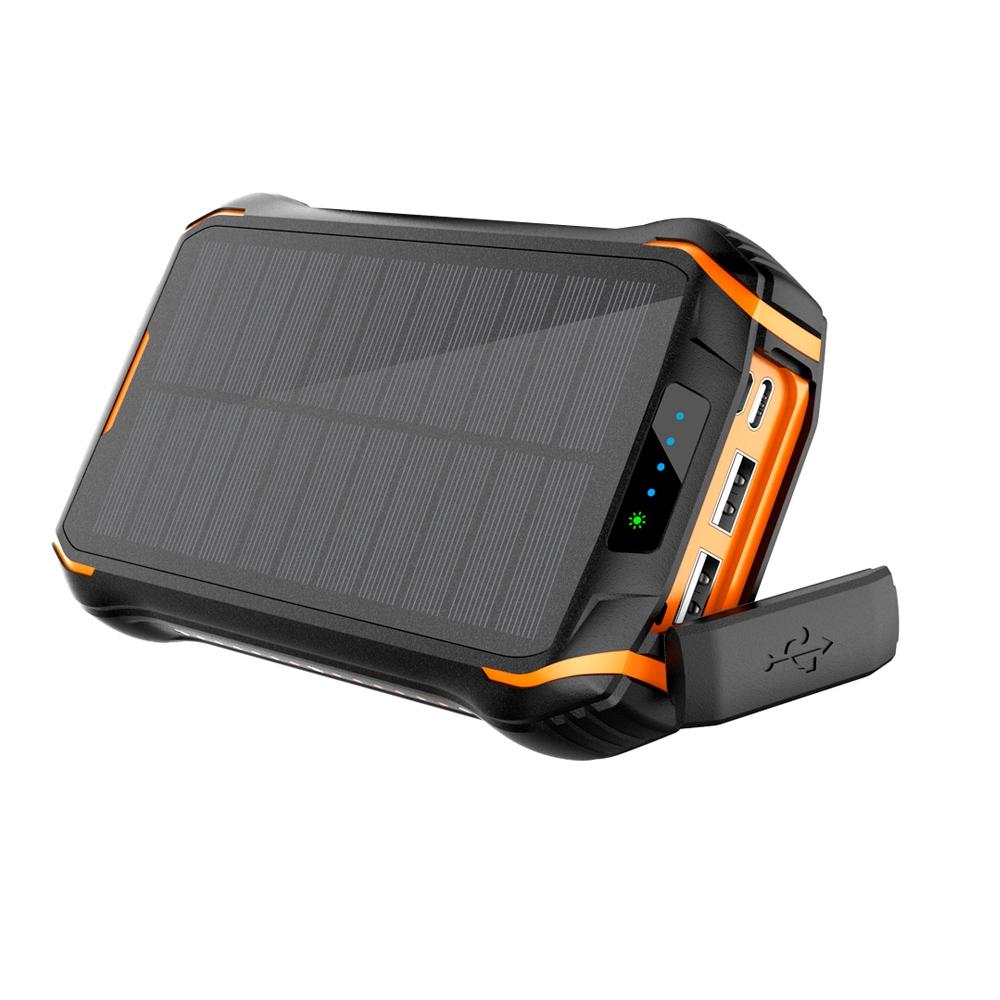
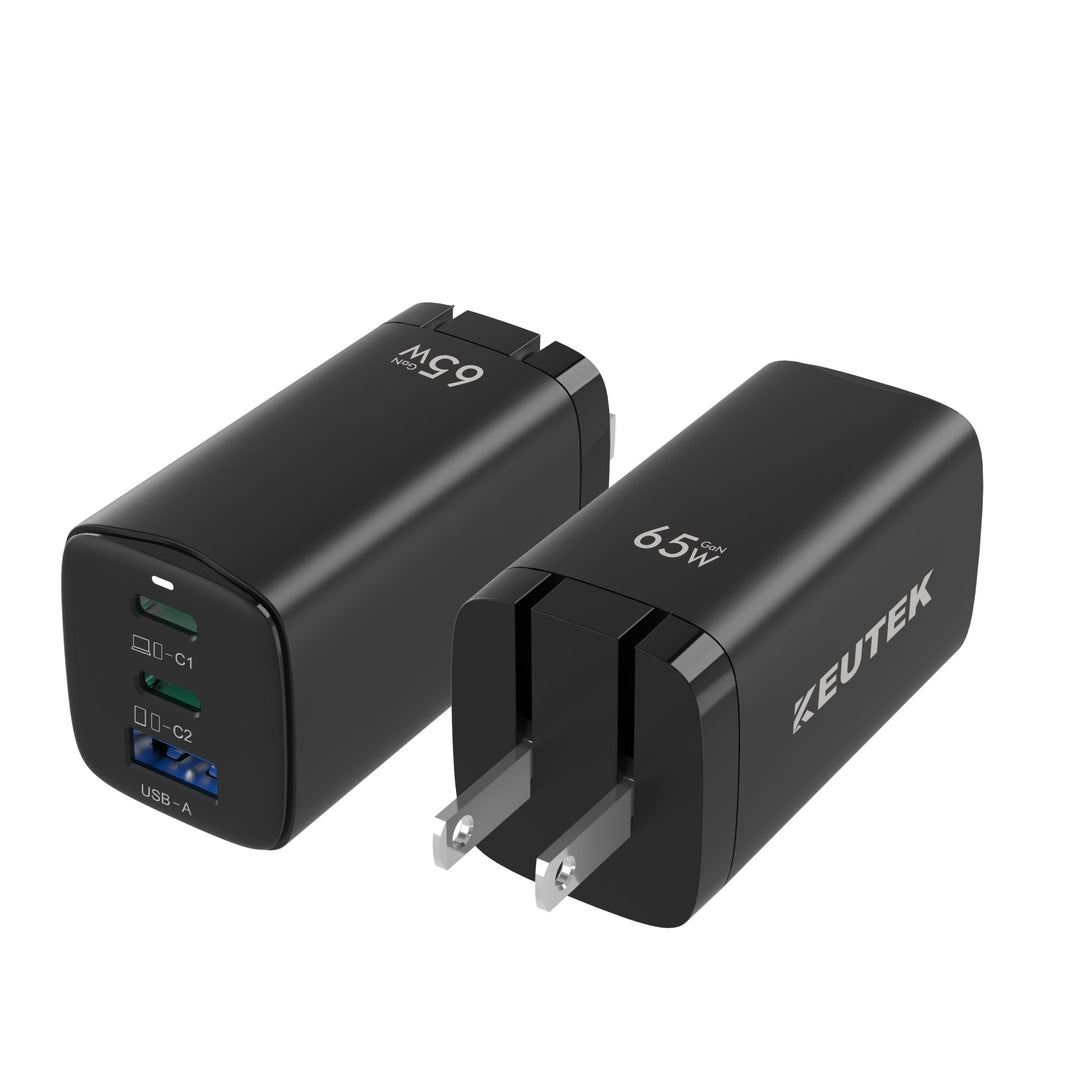
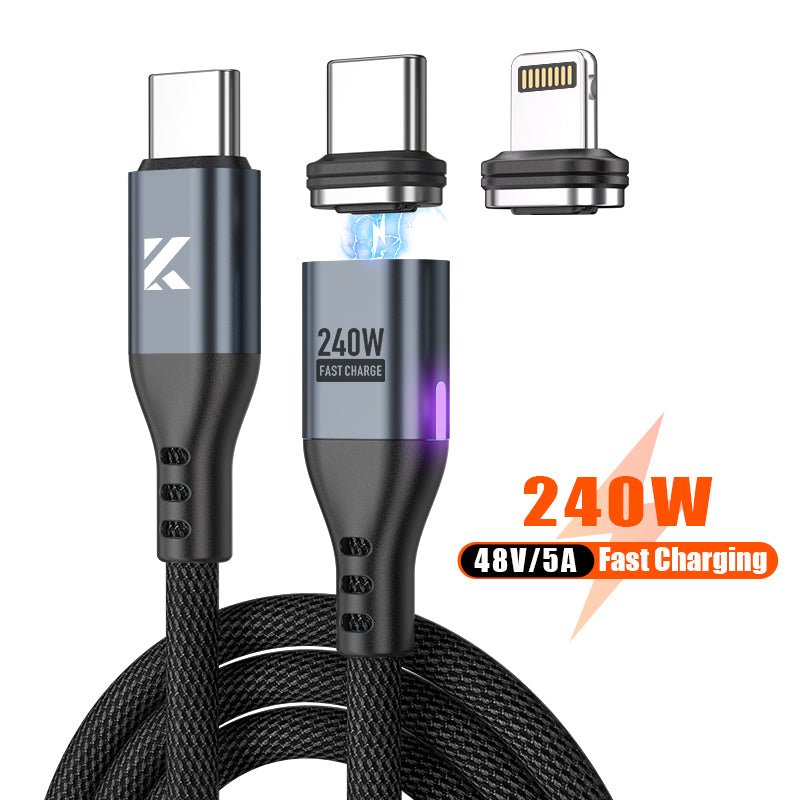
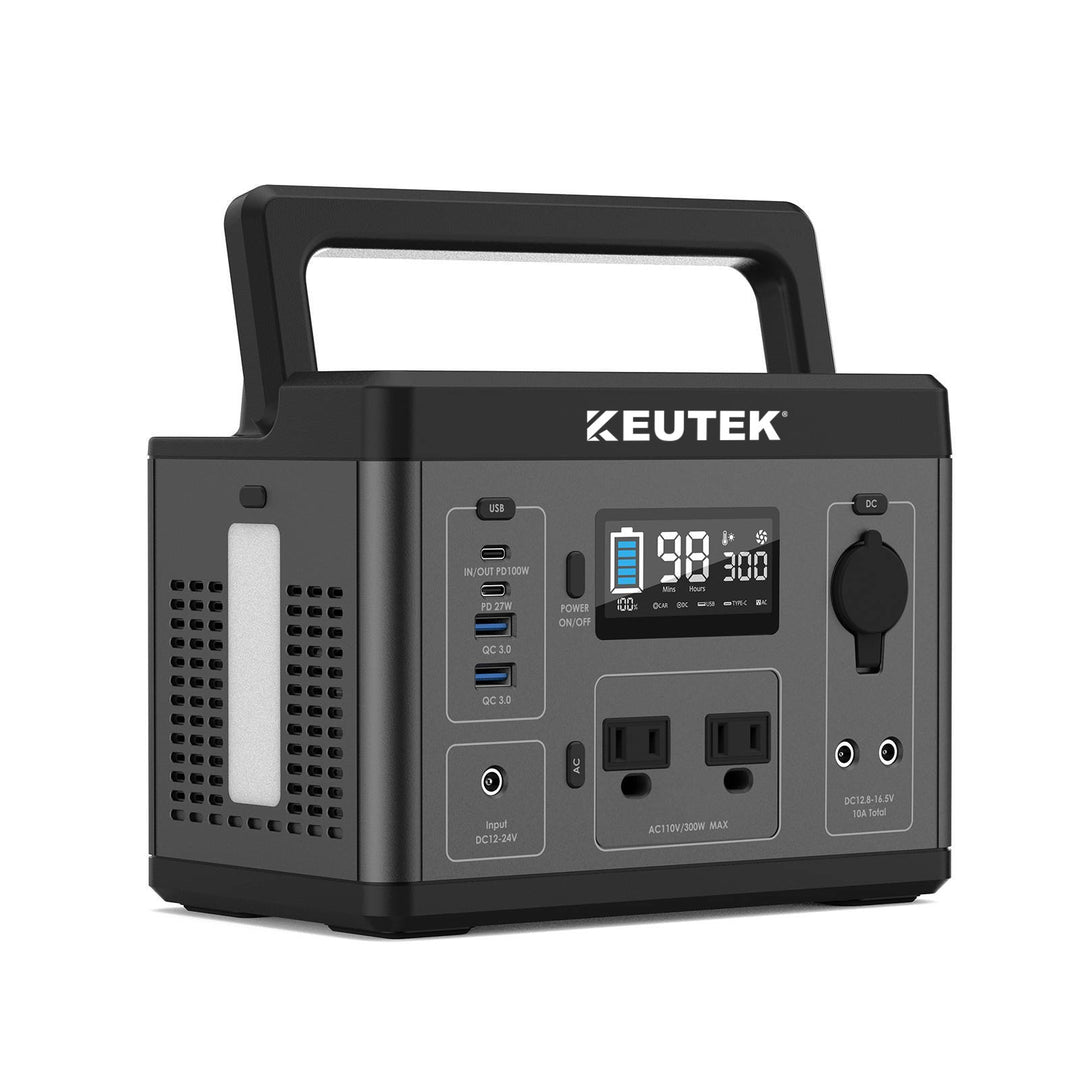
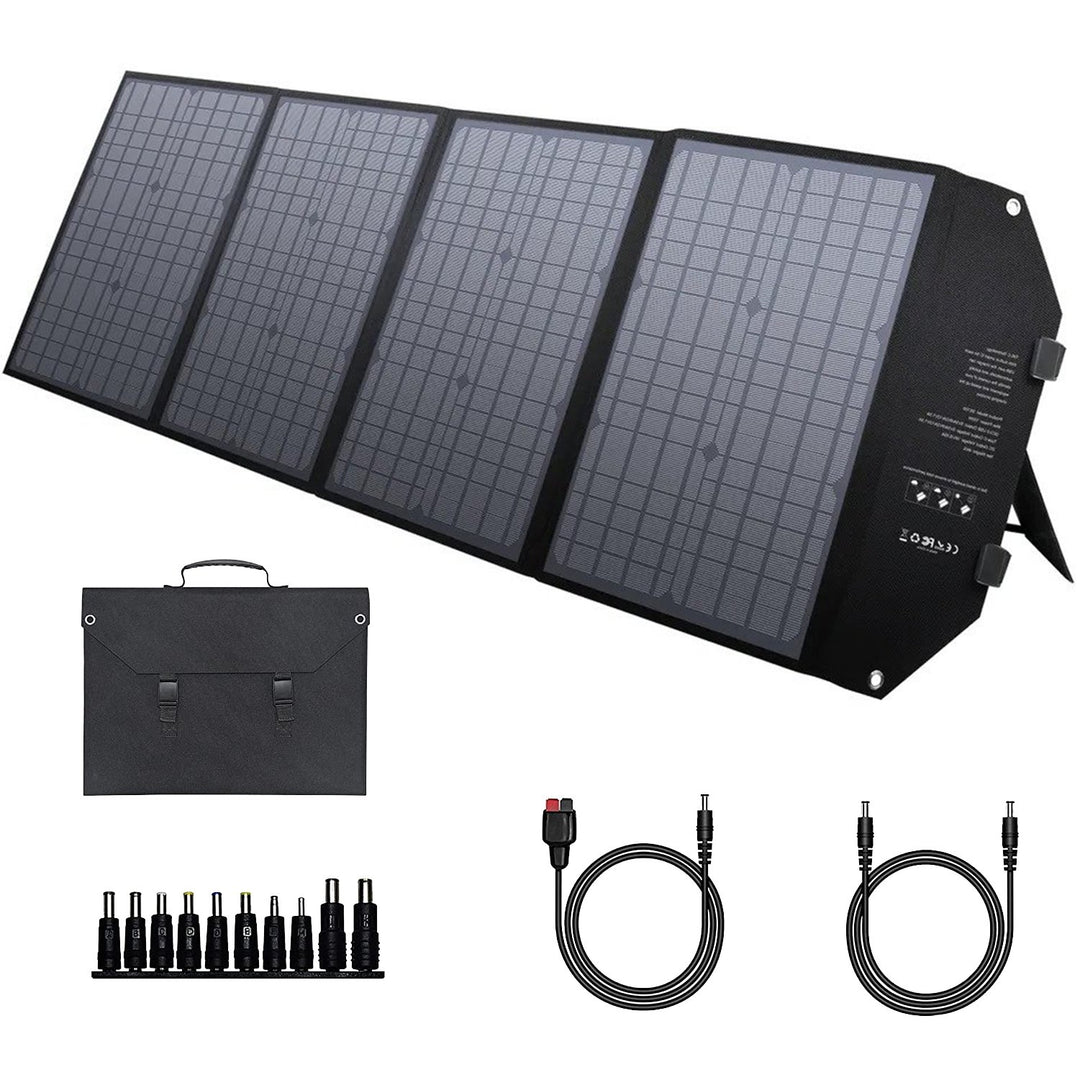
Leave a comment